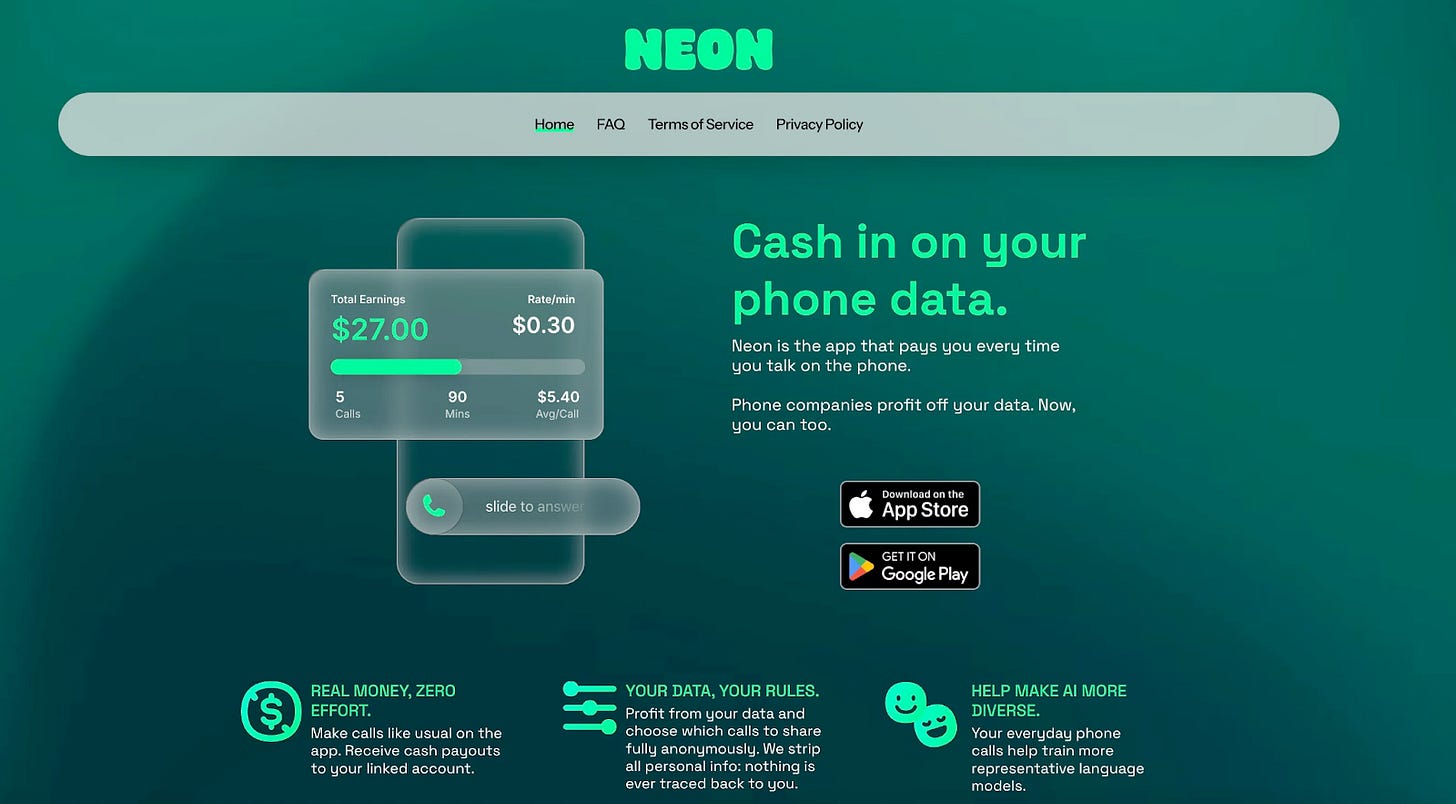🌀🗞 The FLUX Review, Ep. 208
September 25th, 2025

Episode 208 — September 25th, 2025 — Available at read.fluxcollective.org/p/208
Contributors to this issue: Ade Oshineye, Wesley Beary, Dart Lindsley, Erika Rice Scherpelz, Neel Mehta, Boris Smus, Justin Quimby, MK
Additional insights from: Ben Mathes, Jasen Robillard, Lisie Lillianfeld, Robinson Eaton, Spencer Pitman, Stefano Mazzocchi, and the rest of the Flux Collective
We’re a ragtag band of systems thinkers who have been dedicating our early mornings to finding new lenses to help you make sense of the complex world we live in. This newsletter is a collection of patterns we’ve noticed in recent weeks.
“The trouble … is that we are terrifyingly ignorant. The most learned of us are ignorant.… The acquisition of knowledge always involves the revelation of ignorance—almost is the revelation of ignorance. Our knowledge of the world instructs us first of all that the world is greater than our knowledge of it.”
— Wendell Berry
♟️📉 The hidden cost of getting away with it
A product manager ships a messy, half-baked feature. But users love it. Internally, it’s hailed as a win. The team didn’t learn how to build well; they learned that building fast and getting lucky works.
Bad habits are reinforced when good short-term outcomes mask poor long-term outcomes. Hindsight bias combines with success in a way that makes us think we are better than we are. The win isn’t a lie, exactly. It just comes with a silent cost: you don’t learn how to tell the difference between what happens to work now and what will work in the future.
In chess, there’s a name for this pattern: hope chess, where you make moves not because they’re strong, but because you hope your opponent won’t find the best reply. If you get away with it, you do it again. And again. Until one day, you play with better opponents, and you realize your whole game was built on borrowed time.
This same pattern shows up everywhere: in business strategy, geopolitics, negotiations, hiring. Decisions that “worked” become templates, even if they aren’t robust in the face of stronger challenges, like bad-faith actors.
One place where this dynamic becomes noticeable in real-time is in auctions. People can get so obsessed with winning that they stop thinking clearly. The price rises as the thrill takes over. Everyone forgets that they are riding the same high. And then someone is stuck with something they paid too much for.
Tariffs often play out the same way, but on a longer time scale. A country imposes tariffs to protect domestic industry. Another retaliates. Everyone believes they’re playing defensively. However, collectively, the system deteriorates, characterized by higher prices, slower trade, and reduced cooperation. Each move makes local sense, but the advantage unravels as others respond in kind.
What makes hope chess dangerous is that it sometimes works… and then it teaches you the wrong lessons. But once you see this pattern, you can start playing a better game. You can build strategies that hold up under scrutiny, not just under luck. You can seek out stronger opponents, not just easier wins. You can ask better questions: Did this work because we were smart… or just early? Did we succeed because of our choices… or because no one else showed up?
You can even design systems that expect competent responses: product strategies that anticipate copycats, pricing models that hold in competitive markets, policies that anticipate bad-faith actors.
Success isn’t about getting away with it. It’s about knowing why something worked and whether it will still work tomorrow.
🛣️🚩 Signposts
Clues that point to where our changing world might lead us.
🚏👩💼 RTO mandates are continuing, but workers aren’t actually coming back
Return-to-office mandates are continuing apace, with companies now requiring 12% more time in the office compared to early 2024. But employees are largely not complying: Americans still work from home about 25% of the time, a figure that’s largely unchanged from 2023 (and a far higher plateau than the ~7% figure pre-pandemic). Companies have seemingly been hesitant to crack down using technologies like badge-tracking, and many managers reportedly protect top performers who want to work from home anyway. And some companies who have enforced RTO have had trouble implementing it; Amazon ran short of desks and meeting rooms after ordering hundreds of thousands of workers back, and ultimately rolled back RTO in a few cities. Some economists believe that RTO might be a tactic to reduce headcount but not something that companies actually care enough about to enforce.
🚏☎️ A phone app is paying users up to $30 a day to record their calls
A new mobile app called Neon, which has become the #2 social app on the iOS App Store, pays users 30¢ a minute (and up to $30 a day) for the privilege of recording their incoming and outgoing phone calls. The app’s privacy policy gives the owners nearly unlimited access to phone call data, which they say they’ll sell to AI companies to help train voice models. The founder said he was inspired to build the company after seeing how telecoms profit off user data, and wanted to let people get a cut of that income.
🚏🛍️ Seasonal retail hiring is expected to fall to its lowest level since 2009
American retail stores usually hire many seasonal workers during the holiday shopping period, but a job placement firm projects that this year’s seasonal hiring will be the weakest since the Great Recession: retailers are likely to add 500,000 jobs in the last three months of this year, the lowest mark since 2009 and an 8% drop from last year. The ultimate reason is a softening of consumer demand, which experts believe is driven by tariffs, inflation, and increasing credit card debt. Indeed, PwC found that “shoppers are planning to spend 5% less on holiday gifts, travel and entertainment this year,” the first significant drop since 2020.
🚏📦 Cardboard box demand is slumping—a reversal from COVID’s cardboard boom
Several American cardboard manufacturers are shuttering their mills; the US will lose 9% of its containerboard production capacity this year. It’s a sharp reversal of a COVID-era trend where box sales (and prices) skyrocketed amidst a surge in e-commerce sales. But demand is now slumping as tariffs and weakening consumer demand lead to a drop in online sales and a tight housing market reduces demand for moving boxes. What’s more, the previous rise in cardboard prices drove many online retailers (including Amazon) to switch from cardboard to paper and plastic packaging, further reducing cardboard demand.
📖⏳ Worth your time
Some especially insightful pieces we’ve read, watched, and listened to recently.
The Age of the Meme Shooter Is Here (Foreign Policy) [Archived] — Argues that trying to place shooters like Luigi Mangione or the Kirk killer on the political left-right spectrum is a category error: these men are motivated less by politics than by “a strain of chaotic nihilism” that’s brewing in online chat rooms. In these irony-saturated worlds, everything is both a joke and not, violence is glorified and gamified, and taking violence to the real world is just something done “for the lulz.”
A New Kind of Code (Register Spill) — Argues that, even if LLMs only spit out low-value code, there are still a lot of situations where you only need low-value code (analyzing random files, gluing tools together, writing tests, etc.), and so AI can still save a lot of time. The author compares it to discovering glue after spending years working with only bolts and screws: you wouldn’t use it in the same places, but it opens up a lot of new building opportunities.
Skipping Alignment Leads to Zero-Impact UX (Pavel Samsonov) — Observes that UX designers have always had a problem of skipping straight to the artifact (e.g. a wireframe or prototype) without doing the actual hard work of user research and getting alignment, which is really what the UXR process is about. Vibe-coding tools make that even worse by making it easier to generate cargo-cult artifacts that look high-fidelity but lack any of the underlying thinking or effort. It’s part of a larger problem of management optimizing for outputs that are easy to measure (e.g. lines of code) or taking visible steps without doing the work needed to make them effective (e.g. RTO without building social bonds).
Do World’s Fairs Still Matter? (Bloomberg CityLab) — Uses Paris’s seven major exhibitions (1855–1937) to demonstrate how world’s fairs catalyze urban transformation and global positioning. These events didn’t just showcase technology; they created lasting infrastructure (the Eiffel Tower, the Alexander III Bridge), launched architectural movements (Art Nouveau, Art Deco), and enabled massive urban planning (Haussmann’s boulevards). Today’s pattern of hosting fairs in rapidly developing cities like Dubai and Astana continues this tradition, using temporary spectacle to achieve permanent modernization and international recognition.
🔍📆 Lens of the week
Introducing new ways to see the world and new tools to add to your mental arsenal.
This week’s lens: contextual asymmetry.
Picture a long bike race. The rider in front is cruising at 20 mph. They ease back to 15. From our struggle to maintain 14 mph, it looks like they are faltering. We congratulate ourselves: we’d never slow down, and now we’re going to catch up! But what we don’t realize is that they are not slowing from weakness, but to conserve energy for the hills ahead.
That’s the trap of contextual asymmetry. We’re not playing from the same position. The leader has built a buffer; they can change strategies without losing their edge. For us, the same move would mean falling out of the game. What looks like a poor choice from behind may be the dominant strategy from ahead.
In most contests, every player is solving for a different payoff. Early in the innovation curve, survival comes from speed, risk-taking, and seizing opportunity. Later, the payoff shifts toward endurance, compounding, and conserving value. What’s rational at one stage looks irrational from another, but only if we forget that the game shifts as we climb the curve.
The danger comes when we assume we’re all playing the same round under the same rules. That mistake blinds us to our own trade-offs and leads us to misread others’ moves. What we see as an error may be a strategic positioning. What we see as weakness may be the foundation for the next surge. (Hope chess, as discussed above, is a form of contextual asymmetry.)
So be humble. Humility resets the frame. It reminds us that strategy depends on position, that our opponents probably aren’t stupid, and that the right move is always relative to our current situation.
© 2025 The FLUX Collective. All rights reserved. Questions? Contact flux-collective@googlegroups.com.


